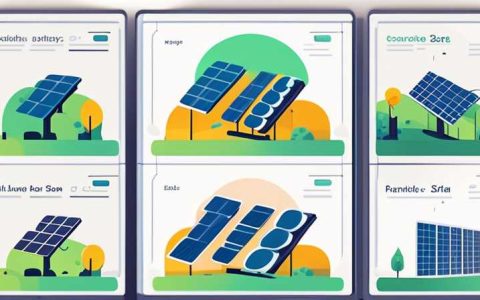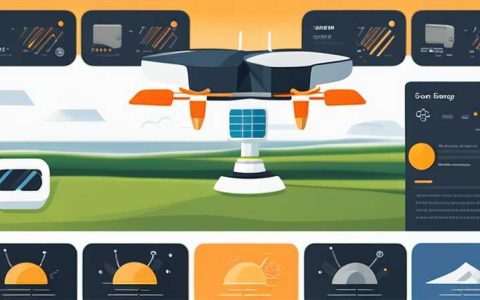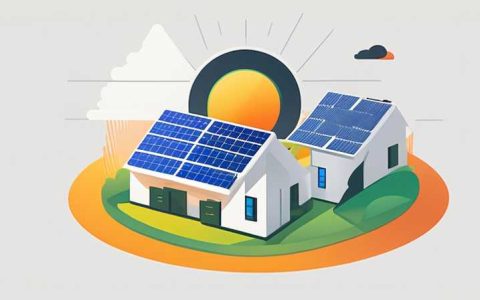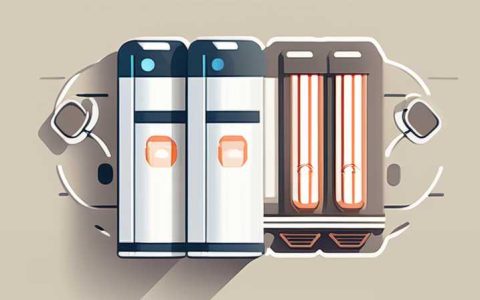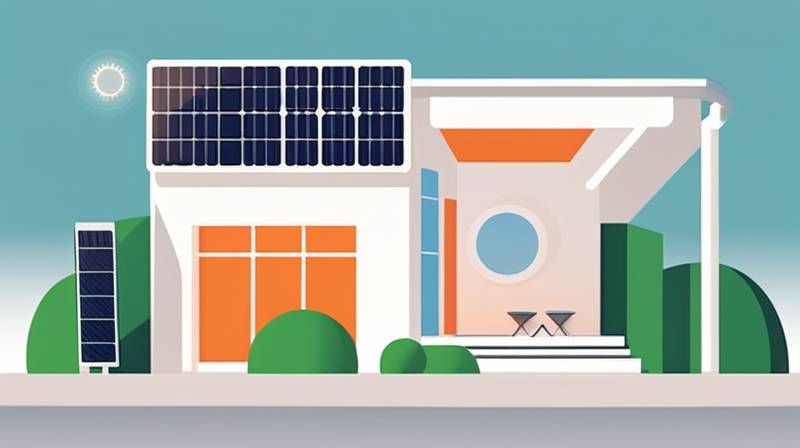
Solar energy systems seamlessly integrate with smart homes, enhancing energy management, providing automation capabilities, and promoting sustainability through efficient resource usage. Key aspects include 1. Energy Optimization through real-time monitoring and management, 2. Automation enabling seamless control of appliances and systems, 3. Sustainability promoting a reduction in carbon footprint, and 4. Cost Efficiency through savings on energy bills. The in-depth interaction between these technologies not only makes households more efficient but also fosters a culture of environmentally conscious living.
1. ENERGY OPTIMIZATION
The integration of solar energy systems into smart homes fundamentally transforms energy management. Solar panels generate electricity from sunlight, while smart home technology allows homeowners to monitor and manage their energy consumption in real time. This combination leads to significant energy optimization. Homeowners can track how much power is being produced by the solar panels compared to the energy utilized by various appliances. Such insights enable users to shift high-energy-consuming tasks—like running a dishwasher or charging electric vehicles—to times when solar energy generation is at its peak, thereby maximizing the use of renewable resources.
Moreover, smart technology can predict energy needs based on historical usage patterns, fluctuating weather conditions, and the household’s daily routines. For instance, if a family typically uses more electricity in the evening, the system can suggest or automatically pre-charge devices during the day when solar energy is abundant. This predictive modeling not only ensures that energy consumption aligns with generation but also enhances the total efficiency of the energy system.
2. AUTOMATION CAPABILITIES
The second significant aspect of how solar energy systems integrate into smart homes is the enhancement of automation capabilities. Smart home systems incorporate various devices and appliances that can communicate and operate synchronously. For example, smart thermostats can adjust the temperature based on weather forecasts and the amount of solar energy being generated. If it’s a sunny day and sufficient solar power is available, the system can optimize heating or cooling settings to ensure comfort while minimizing grid energy usage.
Furthermore, various home appliances can be programmed to operate at times that correspond with solar generation. Smart washing machines, dryers, and refrigerators can initiate cycles when surplus energy is available, thus reducing reliance on grid electricity. This level of automation allows users not only convenience but also deeper engagement with their energy consumption practices, actively contributing to energy savings.
3. SUSTAINABILITY INITIATIVES
The integration of solar systems within smart homes presents a crucial advancement towards more sustainable living. Renewable energy significantly reduces carbon emissions and offers a cleaner alternative to fossil fuels. By utilizing solar energy, homeowners substantially lower their carbon footprint, contributing positively to environmental sustainability initiatives.
In addition to energy efficiency, smart homes can further enhance sustainability through smart irrigation systems, which can adjust watering schedules according to weather patterns, ensuring that water usage is optimized. These intelligent systems can be tied into the solar energy framework, using energy harvested during the day for irrigation, which not only saves electricity but conserves water resources, further promoting a sustainable lifestyle.
4. COST EFFICIENCY AND RETURNS
Investing in solar energy systems integrated with smart technology presents a financially sound decision for homeowners. Cost efficiency is one of the most enticing aspects of this integration. Initially, the upfront costs of solar installation and smart home technology could seem daunting. However, the long-term savings on energy bills can be substantial. By optimizing energy use and reducing reliance on conventional energy sources, homeowners can significantly lower their monthly utility costs.
In many cases, homeowners can also benefit from government incentives, tax rebates, or credits for using renewable energy systems, leading to quicker return on investment. Additionally, the value of the property often increases with the integration of smart technology and renewable energy systems, making the investment beneficial not only for energy savings but also for property resale potential.
5. SMART HOME INTEGRATIONS
Various smart home products can integrate efficiently with solar energy systems. Smart energy storage solutions like battery systems allow excess energy generated during the day to be stored for use at night or on cloudy days. A smart home energy management system (HEMS) can efficiently coordinate solar energy production with household demand. Furthermore, smart appliances that come equipped with Wi-Fi capabilities can communicate with solar systems, allowing for easy synchronization and management.
Moreover, advanced monitoring solutions enable users to see real-time data on energy production and consumption. By analyzing this data, homeowners can make informed decisions about their energy usage patterns and adjust behaviors accordingly. For instance, if data shows that certain appliances are consuming more energy than projected, homeowners can choose to limit their usage or upgrade to more efficient models.
6. FUTURE POTENTIAL AND INNOVATIONS
With ongoing technological advancements, the future of solar energy integration with smart homes holds remarkable potential. Innovations in solar technology, such as solar roof tiles and more efficient photovoltaic panels, could streamline installations while enhancing energy generation capabilities. Improvements in smart home platforms may further elevate integration possibilities. For instance, AI algorithms can optimize energy use beyond manual settings, learning from user habits to create even smarter energy-saving strategies.
As cities and homes continue adopting smart technology in conjunction with renewable resources, future developments may lead to collective smart grids, where communities share energy produced locally. Such innovations promise not only to enhance personal energy efficiency but to bolster community resilience against energy fluctuations and environmental challenges.
SOLAR ENERGY INTEGRATION FAQs
1. HOW DO SOLAR ENERGY SYSTEMS WORK IN SMART HOMES?
Solar energy systems in smart residences function by capturing sunlight via solar panels, converting it into electricity. This energy can be utilized directly, stored in batteries, or integrated into a smart home energy management system that monitors and controls energy consumption. Smart appliances can also operate based on solar energy availability, enhancing efficiency and reducing reliance on traditional power sources.
2. WHAT ARE THE COST BENEFITS OF INSTALLING SOLAR IN A SMART HOME?
Installing solar energy systems in conjunction with smart technology can lead to considerable long-term financial savings. Although the initial investment might be substantial, reduced monthly utility bills and potential for increased property value make it an attractive choice. Furthermore, tax incentives and rebates for renewable energy initiatives will lower upfront costs, contributing to a fast return on investment.
3. HOW DOES SOLAR ENERGY IMPACT THE ENVIRONMENT IN SMART HOMES?
Utilizing solar energy significantly lessens a household’s carbon footprints by reducing the reliance on fossil fuels. The integration with smart home technology enhances efficiency—by optimizing energy usage, food waste from over-reliance on grid energy can be minimized. The collective impact promotes not just consumer benefits but contributes to wider sustainability initiatives at community levels.
In a world increasingly attuned to the importance of sustainability and efficiency, the synergy between solar energy systems and smart homes stands as a testament to modern innovation. This fusion provides multifaceted advantages, integrating technology with ecological mindfulness, ultimately propelling us towards a greener tomorrow. As homeowners integrate solar energy into their smart environments, they not only reap cost savings and optimize energy use but also embody a proactive stance against climate change. The responsiveness and intelligence of these systems present a compelling argument for their adoption as standard practice in residential living. The journey towards energy independence and environmental responsibility begins with the decisions made today, paving the way for communities that prioritize sustainability through advanced technology. This integration reflects a significant shift in how we approach energy consumption, marking a new era where homes are not just dwellings but active participants in the ecosystem. Such transformations encourage a culture of resourcefulness and stewardship, one that future generations will certainly appreciate. With promising technological advancements on the horizon, the landscape of energy consumption in homes will continue to evolve, ensuring a sustainable and efficient future.
Original article by NenPower, If reposted, please credit the source: https://nenpower.com/blog/how-solar-energy-systems-integrate-with-smart-homes/



